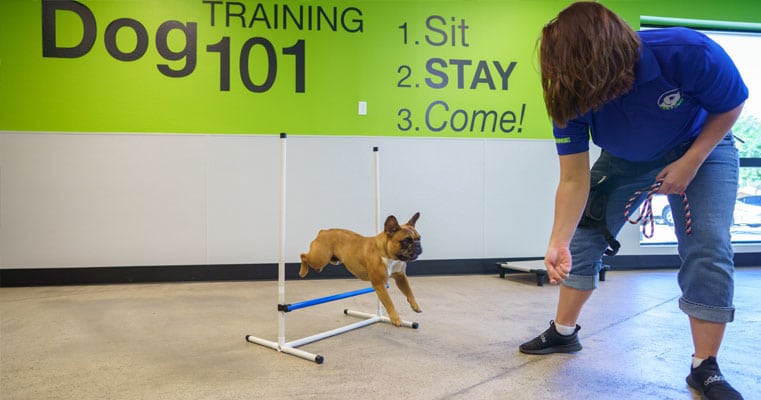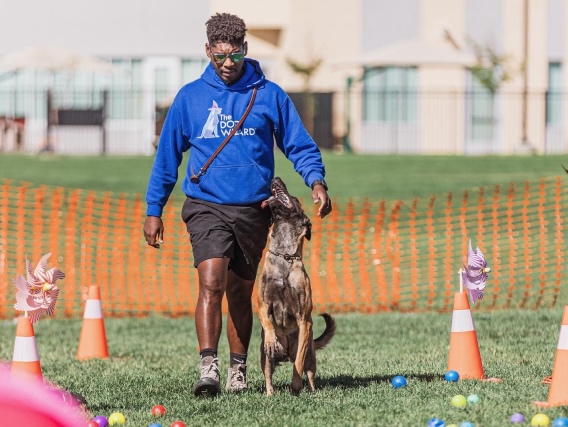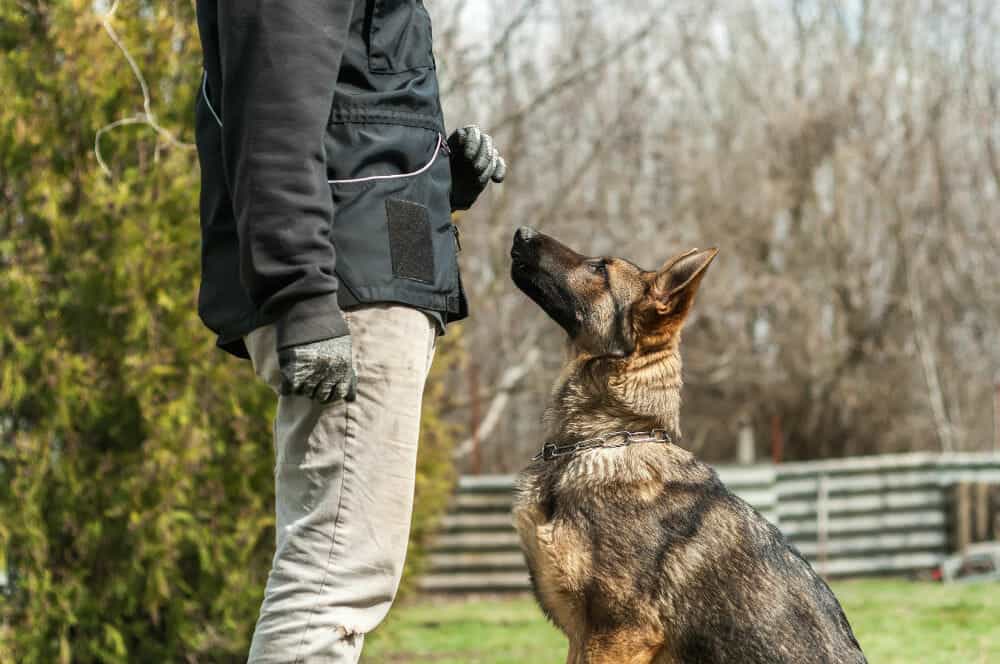Boost Your Abilities with Local Dog Training Charlotte Programs
Boost Your Abilities with Local Dog Training Charlotte Programs
Blog Article
Unlock Your Canine's Prospective: Proven Pet Dog Training Approaches for Success
Effective pet training is a nuanced process that hinges on recognizing canine habits and employing scientifically backed strategies. By integrating positive support, establishing clear commands, and focusing on socialization, dog proprietors can cultivate an effective relationship with their animals.
Understanding Dog Habits
Understanding pet habits is essential for reliable training and promoting a positive partnership between dogs and their proprietors. An extensive grasp of canine body language, articulations, and social interactions is important for identifying their requirements and feelings. Pets communicate mostly through non-verbal hints; for instance, a wagging tail may suggest enjoyment, while pinned ears can signify worry or entry.

Furthermore, environmental elements play a significant function in forming a pet dog's habits. Modifications in routine, brand-new environments, or the visibility of unknown individuals can cause anxiety or stress and anxiety in canines. Recognizing these triggers enables proprietors to minimize negative reactions and develop appropriate training strategies.
Inevitably, a deep understanding of pet dog habits lays the foundation for effective training techniques, enhancing both behavior and the total bond in between the pet dog and its owner. dog training charlotte. This understanding is important for fostering a well-adjusted, satisfied canine buddy
Positive Support Strategies
Reliable training depends heavily on favorable reinforcement strategies, which have been shown to generate substantial outcomes in forming preferred behaviors in pets. This technique involves compensating a canine for showing particular actions, therefore enhancing the likelihood that these habits will certainly be repeated. Incentives can take various kinds, including deals with, appreciation, toys, or play, depending upon what encourages the private pet.

It is necessary to slowly phase out incentives as the pet dog learns the actions, transitioning to recurring reinforcement. This strategy maintains the actions in time while preventing dependence on continuous rewards. By concentrating on favorable support, instructors can cultivate a relying on connection with their dogs, advertising a cooperative and healthy and balanced training atmosphere that boosts general obedience and efficiency.
Establishing Consistent Commands
A basic aspect of effective canine training is the facility of consistent commands. Uniformity in commands is essential for reliable communication in between the trainer and the pet. When commands are uniform, pet dogs learn to connect details words with preferred actions, which accelerates the training procedure and enhances understanding.
To establish constant commands, it is essential that all member of the family use the exact same terms and gestures. If one individual uses "sit" while one more claims "rest down," it can create confusion for the pet dog. Select clear, distinctive words for commands and ensure everybody associated with the pet's training adheres to these options.
Furthermore, repetition is essential. Strengthen commands via constant practice, making sure that the pet dog obtains enough opportunities to respond properly. When a dog effectively complies with a command, immediate favorable reinforcement must adhere to. This can be in the kind of deals with, appreciation, or playtime, solidifying the connection between the action and the command.
Finally, be person. Developing constant commands takes some time and effort. With commitment and clarity, you will certainly aid your pet dog establish a strong understanding of expectations, ultimately resulting in a well-behaved friend.
Socializing and Exposure
Socializing a pet is crucial for cultivating a confident and well-adjusted companion. This procedure includes exposing your pet to a range of atmospheres, individuals, and various other animals to create their social skills and adaptability. a fantastic read Early socializing, ideally in between the ages of 3 to fourteen weeks, is essential, as it prepares for a pet dog's future behavior.
Throughout socialization, purpose to offer favorable experiences in different settings, such as parks, active streets, and homes with various other animals. Present your canine to numerous stimuli, consisting of noises, views, and smells, making certain that each experience is fulfilling. This exposure aids reduce fear and stress and anxiety, leading the way for an extra resilient pet.
Participating in regulated team play sessions with other dogs can also enhance social abilities, instructing your animal proper interactions and borders. Always check your dog's comfort level throughout these experiences, progressively enhancing direct exposure as their confidence grows. Keep in mind, the objective is to develop an all-round pet dog that thrives in diverse scenarios, advertising click reference an unified relationship with both people and various other pets. Focusing on socialization will considerably add to your pet's overall happiness and behavior throughout their life.
Conquering Common Educating Difficulties

Canines might battle to focus in unfamiliar or busy setups. Progressively desensitize your canine to diversions by beginning training in a silent environment and slowly introducing more stimulations as they come to go to this website be proficient.
Furthermore, behavioral problems like leaping or too much barking can end up being frustrating. Address these by teaching alternate habits, such as resting smoothly when welcoming visitors. Uniformity and persistence are crucial; strengthen desired habits continually and avoid scolding, which can cause complication.
Finally, acknowledge that each pet dog is special, and training timelines might vary. Tailor your method to your canine's private needs, and seek professional guidance if necessary. With perseverance and the right strategies, overcoming these obstacles can bring about a trained, delighted canine friend.
Verdict
In final thought, unlocking a canine's potential demands a thorough technique that integrates an understanding of canine behavior, the application of favorable support methods, and the establishment of regular commands. Early socializing and exposure to diverse settings additionally enhance a dog's flexibility and confidence. By addressing usual training difficulties with tailored approaches and persistence, a harmonious and participating partnership between pet and handler can be fostered, inevitably leading to a mannerly buddy capable of growing in different scenarios.
Efficient dog training is a nuanced process that hinges on recognizing canine behavior and utilizing scientifically backed techniques.Recognizing canine actions is crucial for effective training and cultivating a positive connection between pets and their owners.Efficient training relies heavily on favorable reinforcement methods, which have actually been shown to produce substantial results in shaping preferred actions in canines. When commands are consistent, dogs discover to link specific words with preferred actions, which accelerates the training process and improves understanding.
In verdict, unlocking a canine's prospective demands a comprehensive strategy that incorporates an understanding of canine behavior, the application of positive support strategies, and the facility of consistent commands.
Report this page